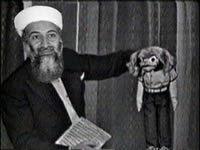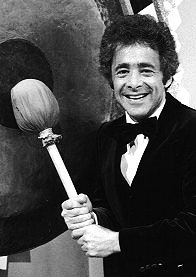 In a rustic stadium in Nigeria, polo players gathered for an annual tournament known as the Nasco Cup. Local officials praised the event's sponsor. âWe are so proud of the contributions of Nasco,â said the commissioner of information for Nigeria's plateau state. NBC News has learned that what really distinguishes Nasco is the man behind it, Ahmed Idris Nasreddin. Three years ago, the U.S. and U.N. officially branded him a terrorist financier. In fact, President Bush personally announced freezing the assets of Nasreddin's bank, Al Taqwa. âAl Taqwa is an association of offshore banks and financial management firms that have helped al-Qaida shift money around the world,â Bush said on Nov. 7, 2001. In a rustic stadium in Nigeria, polo players gathered for an annual tournament known as the Nasco Cup. Local officials praised the event's sponsor. âWe are so proud of the contributions of Nasco,â said the commissioner of information for Nigeria's plateau state. NBC News has learned that what really distinguishes Nasco is the man behind it, Ahmed Idris Nasreddin. Three years ago, the U.S. and U.N. officially branded him a terrorist financier. In fact, President Bush personally announced freezing the assets of Nasreddin's bank, Al Taqwa. âAl Taqwa is an association of offshore banks and financial management firms that have helped al-Qaida shift money around the world,â Bush said on Nov. 7, 2001.
Richard Barrett, a U.N. official who monitors compliance with rules to stop funding for terrorists, says international sanctions against Nasreddin are supposed to be applied worldwide. âWhatâs supposed to happen to his assets,â Barrett told NBC News, âis that they should be frozen, that he should have no access to them, no benefit from them â wherever they are in the world.â Today, some of Nasreddin's accounts and companies are frozen â such as Nasco Nasreddin Holding in Turkey, Nasreddin Group International Holding Ltd. in Bahamas, Nascotex SA of Tangiers, Morocco and Nascoservice in Milan, Italy â but not Nasco in Nigeria, which makes everything from cornflakes to cookies.
Not that Nasco Nigeria is hard to find. It's located on Ahmed Nasreddin Road, named after the alleged terrorist financier. And there are plenty of signs for Nasco cereal and beauty products. Police can even seek shelter in a booth donated by Nasco. NBC News showed what we found to the U.N.'s Richard Barrett. "I didn't know he had cornflakes," Barrett said with a laugh.
Barrett says international sanctions sometimes aren't enforced because it's unclear who actually owns and benefits financially from a company. So NBC News followed the Nasco paper trail â and found it was indeed international. Buried in the corporate records department of Nigeria, in Abuja, are records for Nasco Investment & Property Company Ltd. The documents list Nasreddin's son as chairman. But they show two-thirds of the stock is owned by Amana Holdings, based thousands of miles from Africa, in the country of Panama, in Central America. Investigators have not yet designated Amana Holdings as a Nasreddin asset. In Panama, NBC News obtained the corporate records of Amana Holdings. âEl presidente,â according to the records, is Ahmed Idris Nasreddin.
We showed what we found to the U.N.âs Richard Barrett. Is that enough to shut down Nasreddin's assets? âWell, it may be a jolly good start,â says Barrett. â[It's] enough to suggest that there should be a real investigation of this.â Nasreddin denies ever financing terrorism, and one of his sons says his father no longer owns Nasco Nigeria. He says the shares are in the âcustodyâ of another of Nasreddinâs sons. However, a Nigerian government spokesman tells NBC News that Nasreddin does indeed own Nasco. âHe is well known,â said E.E. Imohe, a spokesman for the Nigerian Embassy in Washington. âHe is actually the major shareholder in Nasco."
Imohe also insisted the U.S. has never even raised any objections, or tried to get Nigeria to take action. âFor such a request to be submitted to the Nigerian government,â said Imohe, âit would have to be transmitted though this embassy. The embassy has not received anything. Even if they had directly contacted the Nigerian government, the Nigerian government would have notified the embassy of what it has received and we have received nothing in that regard.â
âThis isn't a loophole, this is failure to implement the sanctions appropriately,â says Victor Comras, a former terror-finance expert at the State Department. âHe's been involved in terrorist financing. Let's put him out of business.â The U.S. Treasury Department would not answer questions about Nasco in Nigeria, nor would it answer questions about whether the U.S. has tried to do anything to get the government of Nigeria to act. In a statement, the Treasury Department said, âThere is a robust coalition of international partners working to choke off the flow of money to terrorists. ... 'Freezing' real property is a challenge for many countries given that countries often find it difficult to apply laws and procedures intended for liquid assets to real property.â
A year and a half ago, however, the Treasury Department was more willing to discuss Nasreddin. Asked about the efforts against Nasreddin in an interview with NBC News back then, Juan Zarate, then a senior U.S. Treasury official, said: âI think the efforts have been fairly successful.â But back then, in 2003, NBC found another Nasreddin property operating openly â Hotel Nasco in Milan, Italy. Corporate records showed that the hotel, a four star property, belonged to Nasreddin and was operating openly. Officials say it has been difficult for Italyâs government to take action. Today, the Hotel Nasco is still open, and unsuspecting Americans who book a room in Milan may end up in a hotel owned by an alleged terrorist financier. |
 A Swiss journalist suspected by the United States of al-Qaida links has died. Albert Huber was one of five members of a now-defunct Muslim firm who were listed by the United States in 2001 as people accused of helping fund terrorism.
A Swiss journalist suspected by the United States of al-Qaida links has died. Albert Huber was one of five members of a now-defunct Muslim firm who were listed by the United States in 2001 as people accused of helping fund terrorism. 
 Attorneys for Muslim Brotherhood Banker Youssef Nada, founder and president of the
Attorneys for Muslim Brotherhood Banker Youssef Nada, founder and president of the  In a rustic stadium in Nigeria, polo players gathered for an annual tournament known as the Nasco Cup. Local officials praised the event's sponsor. âWe are so proud of the contributions of Nasco,â said the commissioner of information for Nigeria's plateau state. NBC News has learned that what really distinguishes Nasco is the man behind it,
In a rustic stadium in Nigeria, polo players gathered for an annual tournament known as the Nasco Cup. Local officials praised the event's sponsor. âWe are so proud of the contributions of Nasco,â said the commissioner of information for Nigeria's plateau state. NBC News has learned that what really distinguishes Nasco is the man behind it,